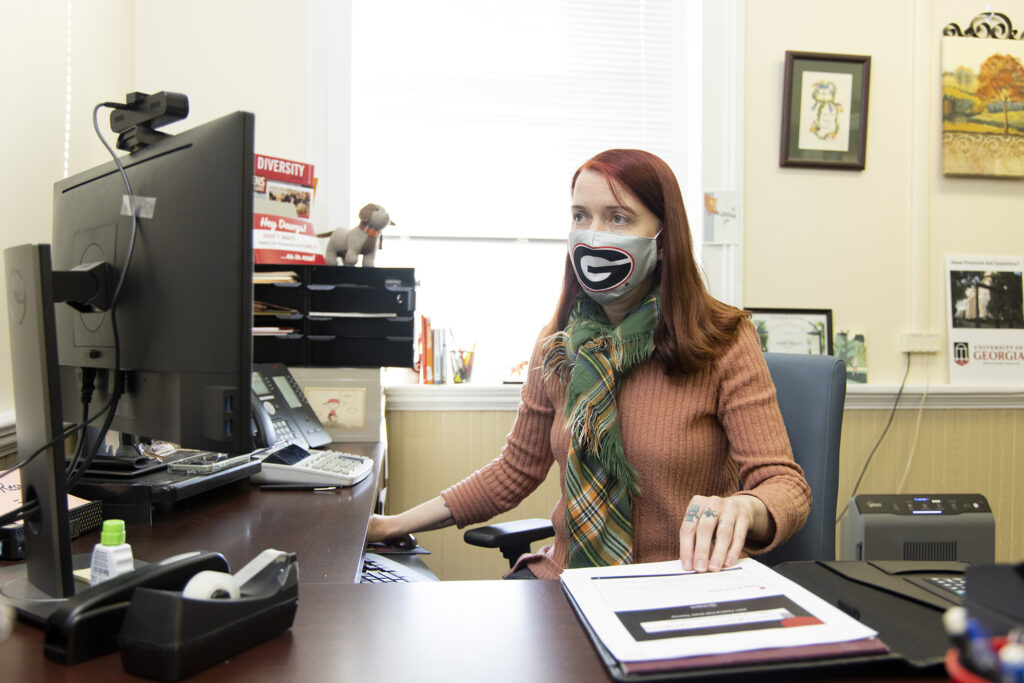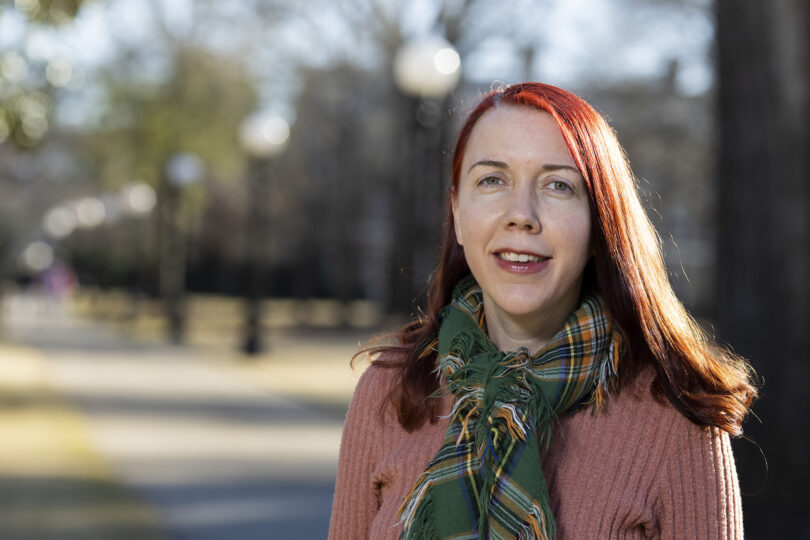Back in pre-COVID times, Mandy Branch spent a lot of her time out in the field, giving presentations at high school financial aid nights, staffing tables at college resource fairs and meeting with students at their schools to help them navigate the ever-daunting FAFSA (Free Application for Financial Student Aid) form.
 Now, like many of the rest of us, her job as assistant director of outreach, training and communications for the University of Georgia’s Office of Financial Aid has gone virtual, and Branch and her team have been learning how to adjust and make it work.
Now, like many of the rest of us, her job as assistant director of outreach, training and communications for the University of Georgia’s Office of Financial Aid has gone virtual, and Branch and her team have been learning how to adjust and make it work.
One major challenge has been keeping up with requests for reevaluating students’ financial aid status.
“Because of the uncertainty due to COVID and people experiencing job loss, we’ve seen an uptick in folks needing professional judgment requests which are when someone’s financial circumstances change,” said Branch. “Financial assistance has been especially necessary this year.”
Branch credits her staffers Kretta Mize and Robert Newsome for making it all work, even cheerfully showing up after hours for evening presentations.
“What I like about my job is that I’m helping students and families navigate a complicated process,” said Branch. “Financial terminology is not terminology that is used in everyday situations, and so when students and parents are encountering that language, it can be incredibly confusing. I try to make it more accessible so when they leave they can say, ‘OK, that makes sense.’”

Mandy Branch works at her desk inside the Holmes-Hunter Academic Building. (Photo by Andrew Davis Tucker/UGA)
Other changes to her job have included adding supplemental webinars to make up for the lack of in-person events. Also, realizing that they needed three people to do those webinars – a moderator, a presenter and a behind-the-scenes person – instead of the old way, which was just Branch up on stage.
Going virtual has been different. Students and parents submit questions via text and are often muted. “I do miss the face-to-face. You can’t really judge the audience. You can’t read facial expressions. So it makes it a little more challenging to figure out.”
Branch’s team has also figured out a workaround for in-person Fill Out Your FAFSA Nights. “In the past, we would go to a high school. We would meet students in the computer lab or the library and sit down with them at a computer and help them complete them. We can’t do that now, but we have learned that we can set up a Zoom appointment with a student and have them share their screen,” said Branch. “It takes a little bit longer, but we can still assist them.”
For Branch, there’s a personal motivation too. “My father had to leave high school and go to work because both of his parents fell ill,” said Branch. “My parents were both big advocates of education beyond high school and I wanted to help others so they can have that college experience and move on to a job that they love.”








